Honorary degrees awarded to eleven
Eight men and three women will receive honorary degrees in Harvard’s 350th Commencement Exercises this morning, including Robert Rubin, who also will deliver this year’s Commencement Address.
In alphabetical order, the recipients are John Ashbery, Doctor of Letters; Ela R. Bhatt, Doctor of Humane Letters; Geoffrey Canada, Doctor of Humane Letters; Jürgen Habermas, Doctor of Laws; Isabella L. Karle, Doctor of Science; Leon Kirchner, Doctor of Music; Alice M. Rivlin, Doctor of Laws; Robert E. Rubin, Doctor of Laws; Arthur M. Schlesinger Jr., Doctor of Laws; and Richard A. Smith, Doctor of Laws.
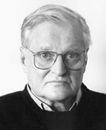
John L. Ashbery
Doctor of Letters
Endlessly challenging and inexhaustibly avant-garde, John Ashbery has emerged, after publishing more than 20 volumes and garnering many important honors and awards, as one of America’s most revered and respected poets. A graduate of Harvard College, Ashbery earned a master’s degree from Columbia, then went to France on a Fulbright scholarship, remaining there 10 years. His collections of poetry include “Some Trees” (1956), “The Tennis Court Oath” (1962), “Self-Portrait in a Convex Mirror” (1975), “Flow Chart” (1991), “Girls on the Run” (1999), and “Your Name Here” (2000).
As an art critic he has written for Art News, New York Magazine, and Newsweek. He has also published essays, translations, plays, and a novel. He delivered the Charles Eliot Norton Lectures at Harvard in 1989-90, published as “Other Traditions” (2000).
David Perkins, the James P. Marquand Professor of English and American Literature Emeritus, said of his poetry: “When Ashbery writes well, no living poet in English can rival him in fresh, apt, surprising phrases. His attitudes and emotions are indescribably gallant as he mingles humor with pathos, resignation and elegy with hope, and maintains his relaxed, equable, fluent, wonderfully imaginative speech despite premises that might have led to despair.”
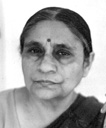
Ela R. Bhatt
Doctor of Humane Letters
Ela R. Bhatt is the founder and general secretary of SEWA, the Self-Employed Women’s Association. Based in the city of Ahmedabad, India, SEWA is a trade union for poor women who eke out a living selling vegetables, recycling trash, hand-rolling cigarettes, and working at other marginal occupations. Inspired by the work of Mahatma Gandhi, Bhatt founded SEWA in 1971. Since then, it has organized women into 70 different trade cooperatives, and has offered insurance and health care to its members. The SEWA bank has assets of $4 million and makes loans to women who want to grow their businesses or improve their living conditions.
In 1995, Hillary Clinton visited SEWA headquarters on her trip to South Asia. A graduate of Gujarat University, Bhatt has served as a member of the Indian Parliament, as a member of the Planning Commission of India, and as chair of the National Commission on Self-Employed Women. She is a member of the board of trustees of the Rockefeller Foundation and chair of the International Alliance of Street Vendors.
Bhatt’s publications include “Profiles of Self-Employed Women” (1975) and “Grind of Work” (1989). Among her many awards are the Right Livelihood Award for “changing the human environment” (1984) and the Asia Society Award as “a builder of bridges between Asians and Americans” (2000).
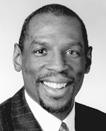
Geoffrey Canada
Doctor of Humane Letters
Geoffrey Canada enjoys a national reputation as an expert on violence, children, and community redevelopment. As president/CEO of Rheedlen Centers for Children and Families in New York City, he operates dozens of school-based centers in New York’s poorest neighborhoods. The centers provide thousands of youngsters with a wide variety of programs, including the Beacon School, Harlem Peacemakers Program, the Community Pride Initiative, and the Harlem Children’s Zone. Marian Wright Edelman, founder of the Children’s Defense Fund, described him as “one of the most gifted and powerful voices for children today.”
The author of “Fist Stick Knife Gun: A Personal History of Violence in America” (1995), Canada grew up in poverty in the South Bronx, graduated from Bowdoin College, and earned a master’s degree from the Harvard Graduate School of Education.
A sought-after speaker and TV commentator, Canada is also founder and chief instructor of the Chang Moo Kwan Martial Arts School, teaching the principles of tae kwon do along with anti-violence and conflict resolution techniques. Now in its 13th year, the school is a nationally recognized model for violence prevention efforts.
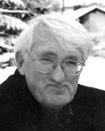
Jürgen Habermas
Doctor of Laws
A professor emeritus at the University of Frankfurt, Jürgen Habermas is considered by many to be one of the most important philosophers and social theorists in the world today – and a formidable exponent of the Enlightenment ideals of rationality and universality.
Born in Germany, Habermas studied philosophy, history, psychology, German literature, and economics in Göttingen, Zurich, and Bonn. In the 1950s he became an assistant to the philosopher Theodor Adorno and an associate of the Institute for Social Research in Frankfurt, birthplace of the influential Frankfurt School of critical theory.
Habermas has criticized modern industrial societies for excessive emphasis on instrumental action, i.e., on doing whatever is necessary to attain given ends. This emphasis, he argues, has prevented them from appreciating the importance of communicative action – understanding and coming to agreement with others. His works include “Knowledge and Human Interests” (1968), “Theory of Communicative Action” (1981), and “Moral Consciousness and Communicative Action” (1983).
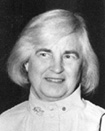
Isabella L. Karle
Doctor of Science
Isabella L. Karle is chief scientist of the X-Ray Diffraction Section at the Naval Research Library in Washington, D.C. Born in Detroit to Polish immigrants, Karle received B.S., M.S., and Ph.D. degrees from the University of Michigan. With her husband, fellow graduate student Jerome Karle, she worked briefly on the Manhattan Project at the University of Chicago before becoming the first female member of the chemistry faculty at the University of Michigan. She joined the Naval Research Laboratory in 1946.
Karle is recognized as a pioneer of physical chemistry for her invention of new methods, using first electron and then X-ray diffraction, to study the structure of molecules. Her work has been recognized by a number of awards and honors, including the National Medal of Science, the Bower Award from the Franklin Institute, and Women in Science and Engineering’s Lifetime Achievement Award.
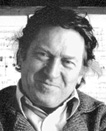
Leon Kirchner
Doctor of Music
Leon Kirchner, Walter Bigelow Rosen Professor of Music Emeritus at Harvard University, is a composer noted for his stylistic individuality. Born in Brooklyn, Kirchner was raised in Los Angeles and studied with Arnold Schoenberg, Roger Sessions, and Ernest Bloch. He received a bachelor’s degree from the University of California, Berkeley, and taught there, as well as at the universities of Buffalo, California, Southern California, and Yale; at the Juilliard School of Music; and at Mills College prior to joining the Harvard faculty in 1961.
Kirchner received the Pulitzer Prize for his “Third Quartet” with electronic tape, two New York Music Critics’ Circle honors (“First and Second String Quartets”) and the Friedheim Award (“Music for Cello and Orchestra,” written for Yo-Yo Ma), as well as commissions from major orchestras and soloists.
An accomplished pianist and conductor, Kirchner founded and directed the Harvard Chamber Players and the Harvard Chamber Orchestra and Friends, acclaimed ensembles of professional freelance musicians.
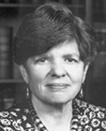
Alice M. Rivlin
Doctor of Laws
Alice M. Rivlin is a senior fellow in economic studies at the Brookings Institution and chair of the District of Columbia Financial Management Assistance Authority. Born in Philadelphia, Rivlin grew up in Bloomington, Ind., and received a B.A. in economics from Bryn Mawr College and a Ph.D. from Radcliffe College.
An expert on fiscal and monetary policy, social policy, and urban issues, Rivlin served as the vice chair of the Federal Reserve Board from 1996 to 1999 and was director of the White House Office of Management and Budget from 1994 to 1996. She founded the Congressional Budget Office in 1975 and directed it until 1983. Rivlin taught at Harvard and George Mason universities and has served on the boards of directors of several corporations. She received a MacArthur Foundation Prize Fellowship in 1983.
A frequent contributor to newspapers, magazines, and journals, Rivlin has written numerous books, including “Reviving the American Dream” (1992).

Robert E. Rubin
Doctor of Laws
Robert E. Rubin served as the nation’s 70th secretary of the treasury, under President Bill Clinton, from January 1995 until July 1999. He has spent much of his career involved with financial markets and national public policy.
Today, Rubin continues that involvement as chairman of the Board of the Local Initiatives Support Corporation (LISC), the nation’s leading community development support organization with 41 offices nationwide. Rubin also serves as a director, chairman of the executive committee, and member of the office of the chairman of Citigroup Inc.
Rubin began his career in finance at Goldman, Sachs & Company in New York City in 1966. He was vice chairman and co-chief operating officer from 1987 to 1990, and served as co-senior partner and co-chairman from 1990 to 1992.
Rubin joined the Clinton Administration in 1993, serving as assistant to the president for economic policy and guiding the newly created National Economic Council. He succeeded Lloyd Bentson as treasury secretary and worked to balance the U.S. budget, open trade policy, quiet financial crises in Mexico, Asia, and Russia, and guide reforms of the Internal Revenue Service.
Rubin has served on many boards, including the Boards of Directors of the Harvard Management Company and the New York Stock Exchange.
Rubin graduated summa cum laude from Harvard College in 1960 with an A.B. in economics. He received an L.L.B. from Yale Law School in 1964 and attended the London School of Economics.
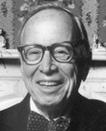
Arthur M. Schlesinger Jr.
Doctor of Laws
Arthur M. Schlesinger Jr. is a two-time Pulitzer Prize-winning historian, a former Harvard professor, and former adviser to President John F. Kennedy.
Schlesinger won the 1946 Pulitzer Prize in history for his book “The Age of Jackson,” published in 1945. He won the 1966 Pulitzer Prize in biography for his 1965 book “A Thousand Days: John F. Kennedy in the White House.”
Schlesinger graduated from Harvard College in 1938, was a Henry Fellow at Peterhouse, Cambridge University, from 1938 to 1939, and a member of the Society of Fellows at Harvard from 1939 to 1942.
During World War II, he served in the Office of War Information and the Office of Strategic Services. He returned to Harvard in 1946 as an associate professor of history and was promoted to full professor in 1954.
Schlesinger was appointed special assistant to President Kennedy in 1961 and served in the White House throughout Kennedy’s administration.
In 1966 he was a visiting fellow at the Institute for Advanced Study in Princeton. He then became the Albert Schweitzer Professor in the Humanities at the Graduate School of the City University of New York, retiring in 1996. Schlesinger is the author of numerous books and the recipient of numerous awards, including the 1957 Francis Parkman Prize for History and the Gold Medal for History from the American Academy of Arts and Letters in 1967.
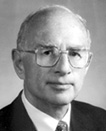
Richard Allen Smith
Doctor of Laws
Richard Allen Smith is the chairman and chief executive officer of GC Companies Inc., operator of the General Cinemas chain of movie theaters.
Smith is a member of the Board of Directors of the Harvard Management Company, and a former member of Harvard’s Board of Overseers. He retired in 2000 as a Fellow of Harvard College and as a member of the Joint Committee on Appointments at Harvard University.
As a Fellow of Harvard College, Smith was instrumental in founding the Harvard/Facing History Project in 1994. The Harvard/Facing History Project is a partnership that has brought together scholars from a variety of disciplines to research and develop new curriculum materials and teaching strategies to engage students in critical thinking about American history, ethics, civic participation, and responsibility.
He also serves as vice chairman of the board for the Dana-Farber Cancer Institute, as a trustee of the Boston Symphony Orchestra, and as vice president of the United Cerebral Palsy Research and Education Foundation in New York. He is a director emeritus of the John F. Kennedy Library Foundation.
Smith received a bachelor of science degree from Harvard College in 1946 and an L.L.D. from Boston College in 1988.
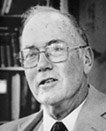
Charles H. Townes
Doctor of Science
Charles H. Townes did fundamental work on the laser and the maser, and holds original patents on both (he holds the patent on the laser with Arthur Schawlow). He won the 1964 Nobel Prize in physics “for fundamental work in quantum electronics which has led to the construction of oscillators and amplifiers based on the maser-laser principle” and served as technical adviser to the Apollo Program until after the first lunar landing.
Townes also served as provost and institute professor at the Massachusetts Institute of Technology (M.I.T.) from 1961 to 1965. Prior to that, he served as associate professor and professor at Columbia University from 1948 to 1961, also serving as chair of the physics department. From M.I.T., he went to the University of California, Berkeley, where he became a university professor in 1967. In 1986, he became university professor emeritus and in 1994, professor in the graduate school.
Townes’ work has been in microwave spectroscopy, nuclear and molecular structure, quantum electronics, radio astronomy, and infrared astronomy. At the University of California, his work in radio astronomy resulted in the first detection of polyatomic molecules in intersteller clouds and the use of molecular spectra to characterize these dark clouds, now an important astronomical field.
Townes has served as a government adviser during much of his career. He was a member of the president’s science advisory committee from 1965 to 1969, serving as vice chairman during the second half of his term. He was chairman of the technical advisory committee of the Apollo Program and has chaired committees on strategic weapons and the MX missile. He has been active in the National Academy of Sciences’ contacts with China, its work on arms control, and its meetings with representatives of the Soviet Academy. He received a bachelor of science in physics and a bachelor of arts in modern languages from Furman University in 1935, a master’s degree in physics from Duke University in 1936, and a doctorate in physics in 1939 from the California Institute of Technology.




